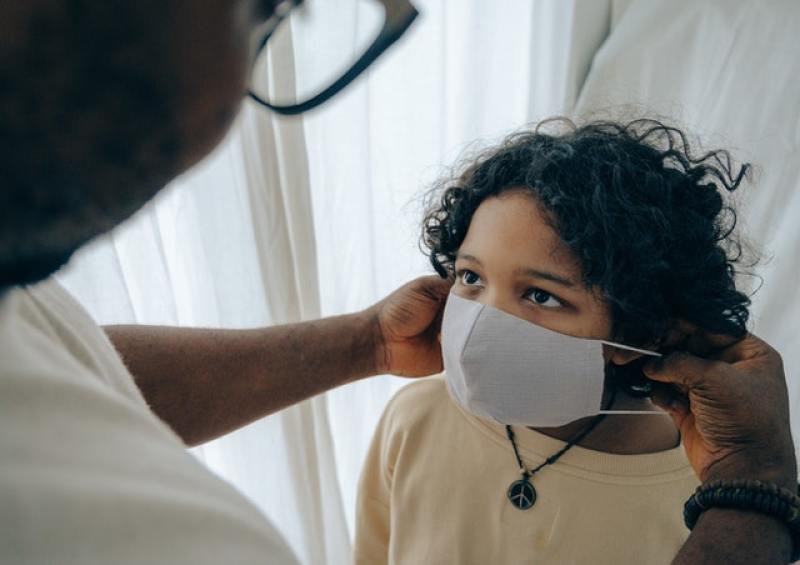
Due to concerns about the potential risks masks bring to schoolchildren who wear them throughout the school day, a group of Florida parents submitted their children's face coverings to a laboratory for examination. Recently, it was found that face masks really capture a wide variety of bacteria, many of which are "dangerous pathogens," according to the researchers.
The Blaze reported that six face masks that had been used lately were submitted to the University of Florida for laboratory testing.
"We need to know what we are putting on the faces of our children each day. Masks provide a warm, moist environment for bacteria to grow," said Amanda Donoho, one of the concerned parents.
Testing performed by the University of Florida's Mass Spectrometry Research and Education Center revealed that five of the six masks tested housed a wide variety of germs, with three masks infected with "dangerous pathogenic and pneumonia-causing bacteria."
On the masks, the 11 "dangerous pathogens" are responsible for diseases like pneumonia, tuberculosis, meningitis and sepsis, food poisoning from E. coli, diphtheria, Lyme Disease, and UTI.
According to Rational Ground, half of the masks had been infected with one or more types of "pneumonia-causing bacteria." One-third of the samples tested positive for one or more types of the bacterium that causes meningitis while another one-third was found to contain microorganisms that were hazardous and antibiotic-resistant in nature.
There were also a number of less hazardous pathogens discovered, including pathogens that may cause a variety of symptoms such as fever, ulcers, acne, yeast infections, strep throat, periodontal disease, Rocky Mountain Spotted Fever, and others.
The masks examined were new or freshly washed before being worn for five to eight hours by youngsters ranging in age from six to eleven. One of them was worn by a grownup.
Controls included a T-shirt worn by one of the youngsters at school and masks that had not been worn. The controls were determined to be free of pathogens.
The findings of Dr. Patrick Grant, a microbiologist at Florida Atlantic University, confirmed that unwashed face masks do accumulate harmful bacteria, whereas Dr. Rossana Rosa, an infectious disease specialist, said that there is no risk of pneumonia transmission because of accumulated infected particles on the facial mask.
But the risk of transmission that happens when students remove and reapply their face masks many times during the school day to eat and drink was not addressed. But given the result of the lab test, the buildup of dangerous bacteria should presumably enhance the likelihood of children becoming ill as a result of exposure.
What about mask mandates
According to WND, a separate study conducted by the University of Louisville indicated that state-mandated masks did not significantly reduce the spread of COVID-19.
"Masks may promote social cohesion as rallying symbols during a pandemic," the researchers said, "but risk compensation may also occur."
Some of the risks cited could be found here.
WND noted that despite the fact that Americans were complying with mask regulations, according to a research conducted in October by the CDC itself, the policies did not seem to have slowed or halted the spread of the coronavirus. Furthermore, it was discovered that wearing a mask had detrimental consequences.
Moreover, a "Mask Facts" page compiled by the Association of American Physicians and Surgeons show that the consensus before the coronavirus pandemic was that the efficacy of mask use by the public at large in reducing the transmission of a virus is dubious.
In a similar vein, according to a study conducted by Baruch Vainshelboim of Stanford University (SU) and published by the National Center for Biotechnology Information, the physical properties of facemasks are ineffective at blocking viral particles due to the difference in scales between them. Facemasks, on the other hand, may have long-term consequences if worn for a prolonged period of time such as the development of chronic illnesses, health deterioration, and early death.


























